The Trikafta Tidal Wave Of Hope
Earlier this year, Cystic-Fibrosis.com conducted our 2nd Annual Cystic Fibrosis In America survey. In this survey, we surveyed 404 people with CF and 230 CF caregivers to learn more about how CF affects their lives. We asked about symptoms, diagnosis, treatment, quality of life, and about individual thoughts and experiences.
Almost inevitably, the recurring theme in this past year’s survey was how new research and treatments have given the CF community a strong sense of hope for the future.
Trikafta making waves
The cystic fibrosis community has had an eventful year! In October of 2019, Trikafta received FDA approval in the United States. This new “triple combo” therapy has been a groundbreaking development that has changed the lives of those it touches. In fact, many of our advocate team members here at Cystic-Fibrosis.com have experienced positive changes in their health thanks to Trikafta.
We asked the CF community about CFTR modulator use. Overall, 68 percent of those we surveyed are currently using a CFTR modulator to manage their cystic fibrosis. Trikafta was the most highly used modulator, followed by Kalydeco, Orkambi, and Symdeko.
On a positive wavelength
There has been lots of buzz about Trikafta in the CF community, so of course we had to ask for your thoughts. We asked people with CF and caregivers how their outlook on cystic fibrosis has changed since the Trikafta approval. While responses varied, most were unmistakably positive.
That being said, we recognize that approximately 10 percent of CFers do not qualify for this new treatment. However, with emerging research and medical advancements, we hope that the 10 percent will soon qualify for Trikafta or similar treatment, too.
Rising life expectancy
With the many advancements in research and care, the life expectancy of people with cystic fibrosis has dramatically increased in recent years. According to the 2018 Cystic Fibrosis Foundation (CFF) Patient Registry, people with CF born between 2014 and 2018 have a predicted life expectancy of 44 years. However, while available data is currently limited, Trikafta is expected to increase life expectancy even more.1,2
It has only been a year since Trikafta was approved in the United States (and it was just approved in the EU under the name Kaftrio), so we are excited to see the many benefits that will continue to emerge. It is safe to say that all the good things happening are giving the CF community hope.
The ripple effect of research
There are more exciting developments in cystic fibrosis research on the horizon. First, the CFF is leading the PROMISE study, which is following 490 people with CF who are taking Trikafta to analyze the long-term effects of the drug. This will tell us a lot about how Trikafta affects different parts of the body over time.3
Second, new research has shown that many rare CFTR mutations respond to Trikafta, Symdeko, and Kalydeco; therefore, Vertex (the pharmaceutical company that produces CFTR modulators) is seeking approval of these drugs for rare mutations. If approved, this means that approximately 600 more people living in the United States with rare CF mutations can be treated with these drugs.4
Of course, these developments would not be possible without clinical trials. We asked about patient interest in clinical trials, and many of you are eager to be involved.
Opportunity as wide as the ocean
While there is still much progress to look forward to in terms of medical advancements and research, we have seen significant breakthroughs in our community in the past year. We are hoping to see more positive changes for CFers in the years to come.
We asked survey respondents to share their outlook on life with cystic fibrosis (including career, relationships, family planning, and financial planning) now that the average life expectancy has increased. Here are some of their answers:
- "The increase in life expectancy has improved the chances that I could be around for my child's entire childhood/adulthood. It also has helped us decide whether or not to have more children."
- "I do feel guilty sometimes, however, because I wouldn’t want to leave my future spouse alone if I die young. I also don’t want to be a burden on my future spouse if I’m unable to take care of myself one day."
- "I'm confident I'll be able to work full-time and find a career I like."
- "[Family planning] is something that I didn't think would ever be a realistic goal. Now it’s something that I've started seriously discussing with my CF team."
- "I get concerned about how long I'll be able to work."
- "I used to be scared of having children, but with new medicine I’m really wanting a baby."
We also compared data from our 2019 Cystic Fibrosis In America survey to our 2020 survey. We found that, while there are still many worries and mixed feelings about life expectancy, more CFers are feeling confident about their future.
We know one thing for sure: living with cystic fibrosis is easier with a community of people who understand. Are you interested in connecting with other people affected by CF? Follow us on Instagram, Facebook, and Twitter to meet others in the community.
The 2nd Annual Cystic Fibrosis In America survey was conducted online from March through July 2020. Of the 634 people who completed the survey, 404 were people who have been diagnosed with cystic fibrosis, and 230 were caregivers of people with cystic fibrosis.
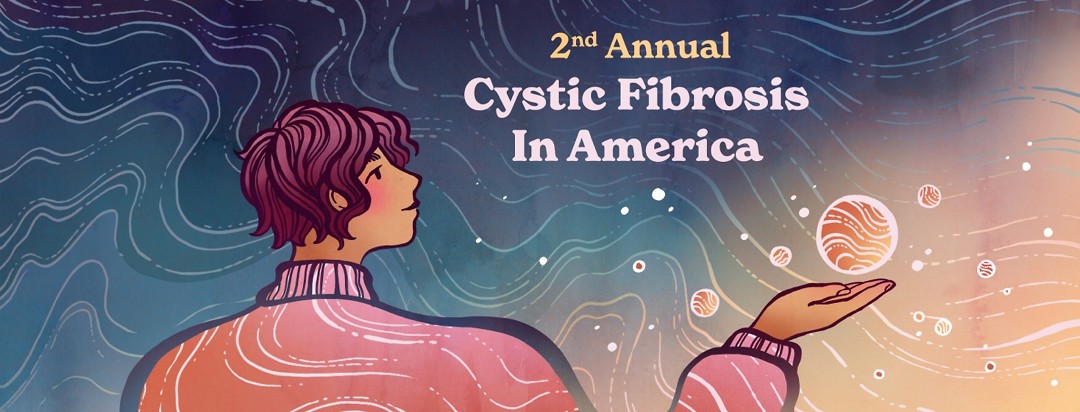
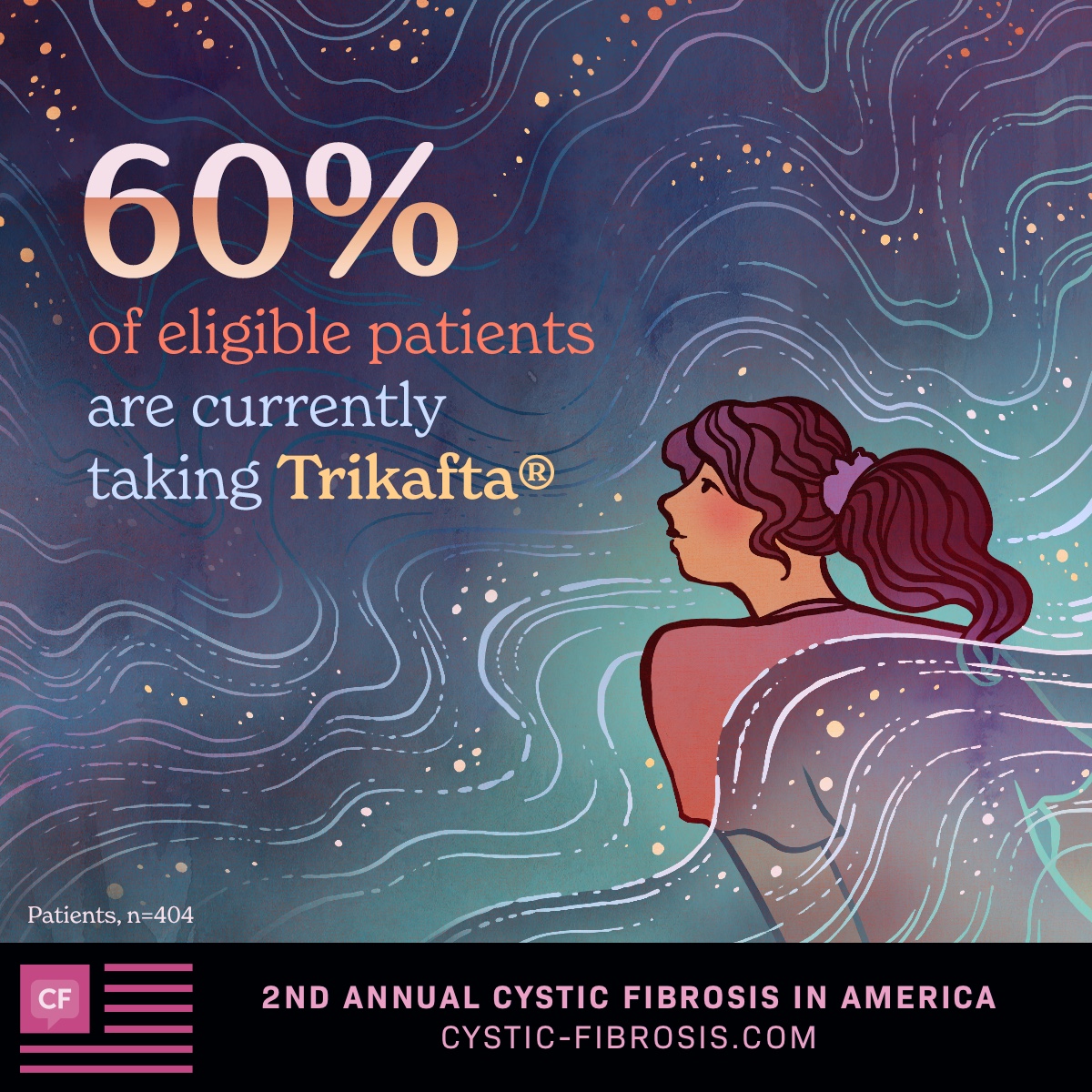
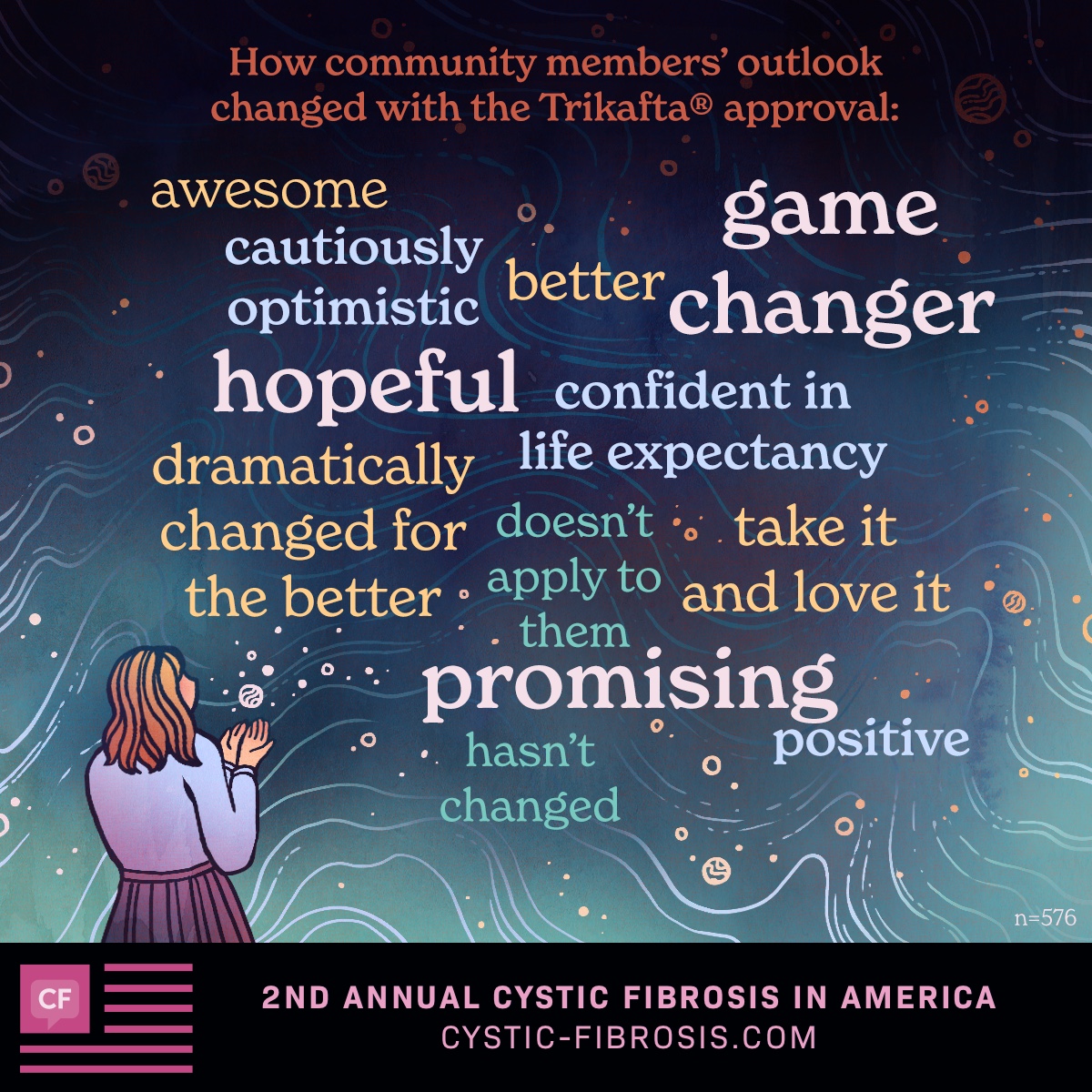
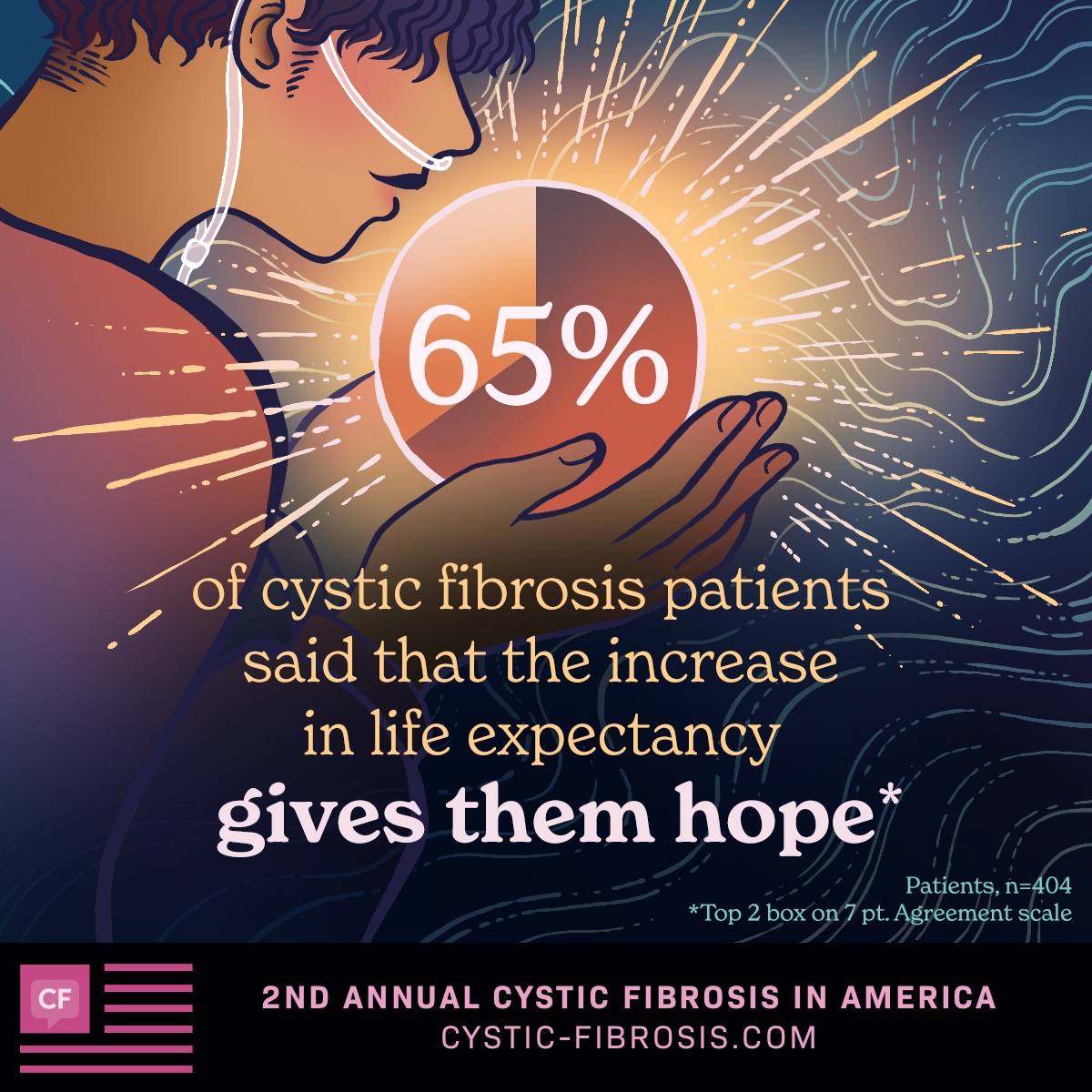
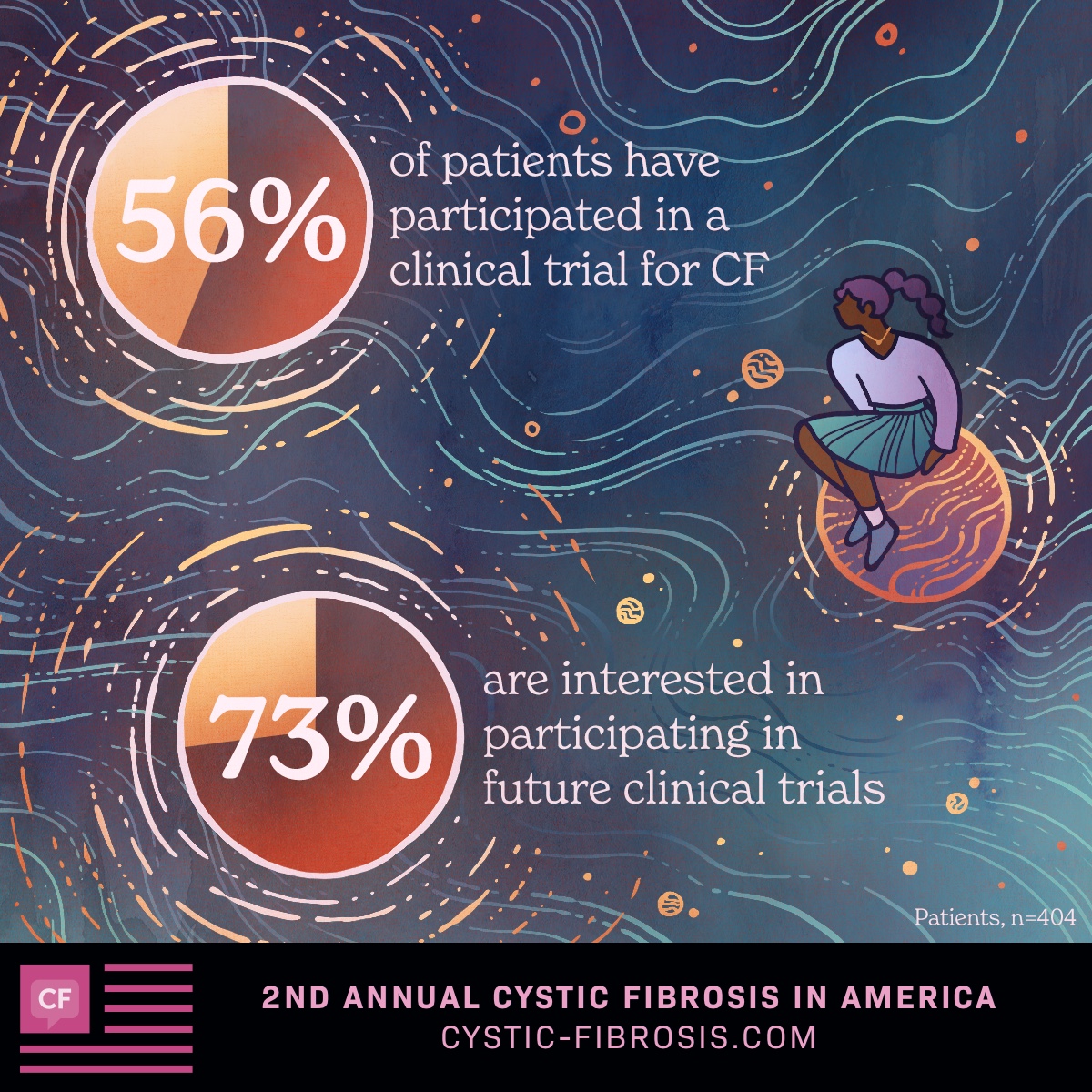
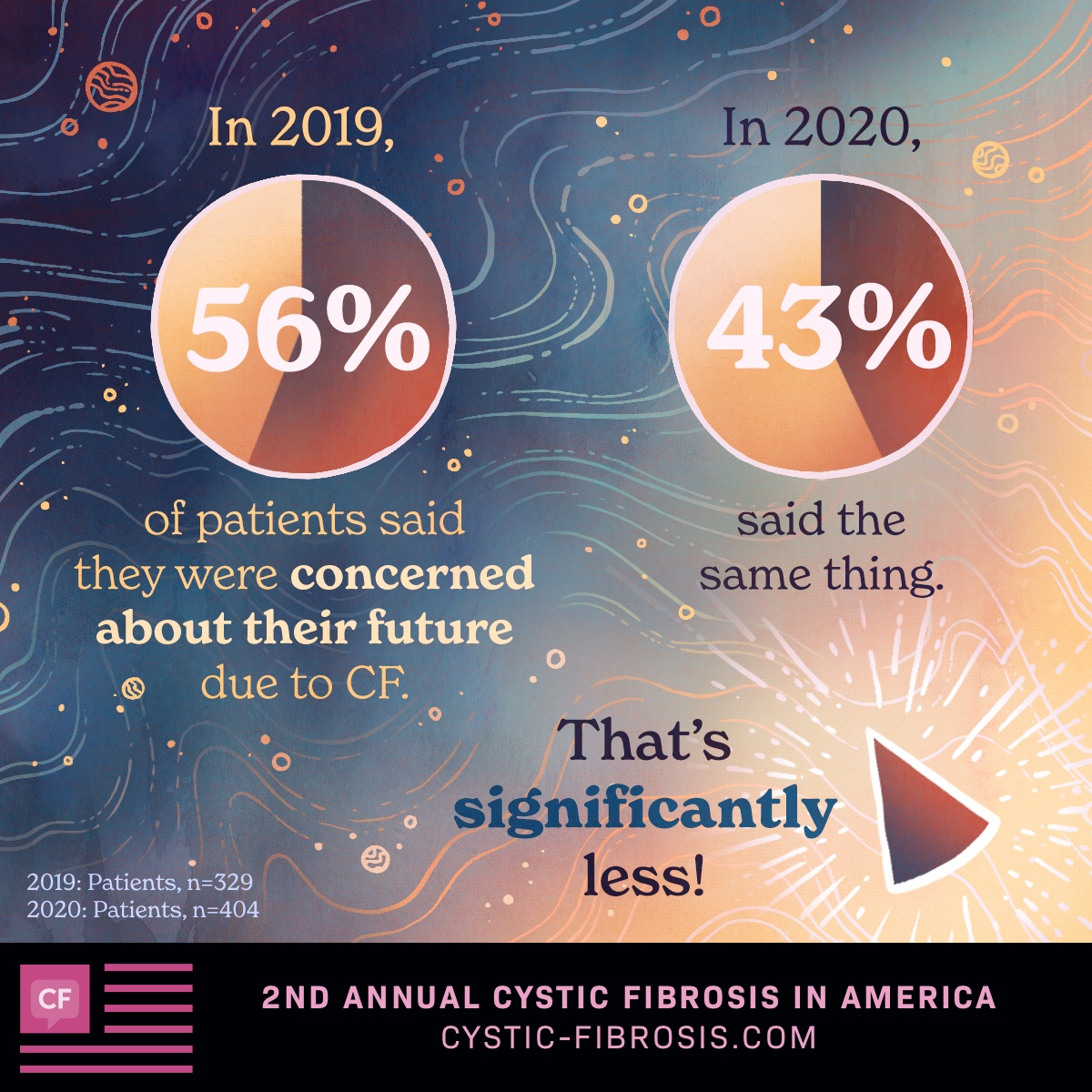
Join the conversation